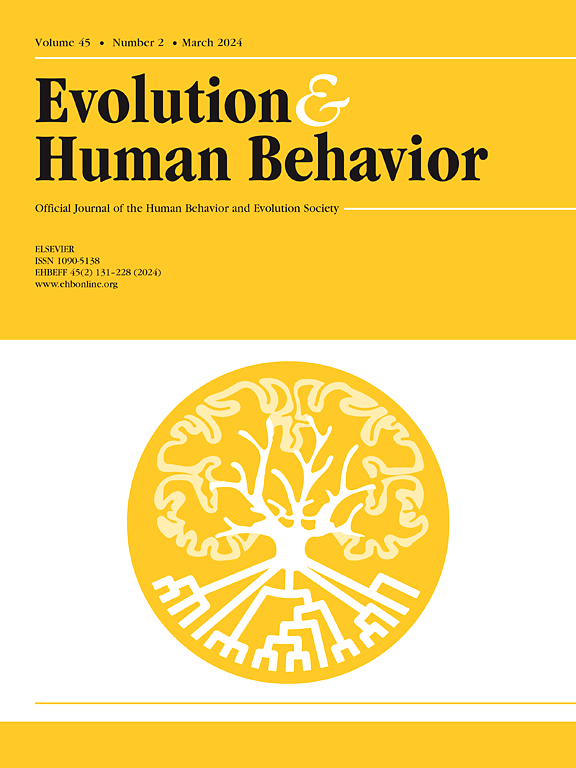Replication of experiments and the canonisation of incorrect conclusions
IF 3.2
1区 心理学
Q1 BEHAVIORAL SCIENCES
引用次数: 0
Abstract
We are in the middle of a revolution over how to collect, analyse and interpret results in the human behavioural sciences. A key issue is to determine the extent to which experimental results are repeatable. However, if the experiment being replicated lacks the appropriate controls or null hypotheses, then replication of experiments can lead to the canonisation of incorrect conclusions. Experiments are required that allow a strong possibility to falsify hypotheses or allow competing hypotheses to be tested in an unbiased manner. We illustrate this problem, and how it can be solved, with examples from the literature on public goods games, which has been used to test hypotheses about the evolution of cooperation in humans.
实验的重复和错误结论的规范化
我们正处于一场关于如何收集、分析和解释人类行为科学结果的革命之中。一个关键问题是确定实验结果可重复的程度。然而,如果被复制的实验缺乏适当的控制或零假设,那么实验的复制可能导致错误结论的规范化。实验必须有很强的可能性来证伪假设,或允许以公正的方式检验相互竞争的假设。我们以公共产品游戏的文献为例来说明这个问题,以及如何解决这个问题。公共产品游戏被用来测试关于人类合作进化的假设。
本文章由计算机程序翻译,如有差异,请以英文原文为准。
求助全文
约1分钟内获得全文
求助全文
来源期刊

Evolution and Human Behavior
生物-行为科学
CiteScore
8.30
自引率
9.80%
发文量
62
审稿时长
82 days
期刊介绍:
Evolution and Human Behavior is an interdisciplinary journal, presenting research reports and theory in which evolutionary perspectives are brought to bear on the study of human behavior. It is primarily a scientific journal, but submissions from scholars in the humanities are also encouraged. Papers reporting on theoretical and empirical work on other species will be welcome if their relevance to the human animal is apparent.
 求助内容:
求助内容: 应助结果提醒方式:
应助结果提醒方式:


